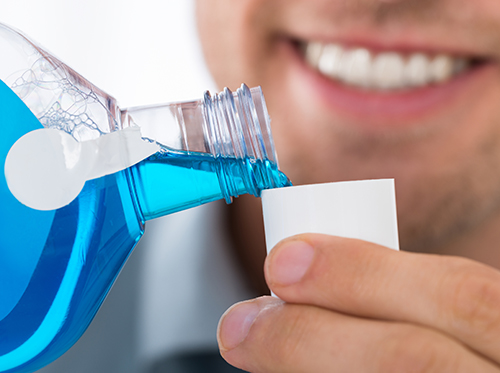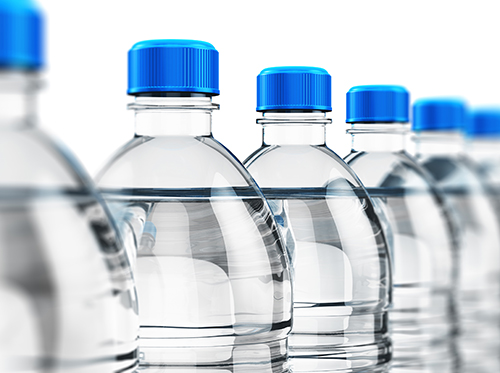Considerations When Picking the Right Mouthwash
May 24th, 2017

A solid oral health routine begins with daily brushing, flossing, and rinsing. Without a consistent oral health regimen, you may begin to experience tooth decay and bacterial infections. Few patients ask Dr. Brad Elkin, Dr. Joshua Epstein, Dr. George Sargiss, Dr. Martin Epstein, Dr. Sonalee Kapoor and Dr. Carly Kinzer about different mouthwash options, so we’ve put together a list of the conditions that mouthwashes can treat. This should help you decide which oral rinse would be best for you.
Gum Health
Antiseptic mouthwashes reduce large amounts of bacteria on and near the gum line and generally help to decrease your chances of developing gingivitis. The key ingredients of antiseptic mouthwashes are antibacterial and antimicrobial items. Antiseptic mouthwash is a preferable option if you are concerned about the general gum health of your mouth.
Fluoride
Fluoride is a great tool for preventive tooth decay treatment. It prevents tooth decay and is great for oral health in general because it kills germs that can live in your mouth. Fluoride also builds stronger teeth. If you’re a bottled water drinker, Dr. Brad Elkin, Dr. Joshua Epstein, Dr. George Sargiss, Dr. Martin Epstein, Dr. Sonalee Kapoor and Dr. Carly Kinzer may recommend that you purchase a simple fluoride rinse to use after brushing.
Bad Breath
Fluoride mouthwash can be used to fight any bad breath issues you may be facing. It’s designed to combat any bacteria that might be building up in your mouth. Most mouthwashes will help eliminate bad breath, but some are specifically designed to address this difficult problem. If you feel as though this might be turning into a chronic problem, please contact Dr. Brad Elkin, Dr. Joshua Epstein, Dr. George Sargiss, Dr. Martin Epstein, Dr. Sonalee Kapoor and Dr. Carly Kinzer to discuss other options that would be effective for treating your symptoms.
American Dental Association (ADA Approval)
The ADA reviews all mouth rinses for safety measures and to prove effectiveness. Any mouthwash approved by the ADA has met strict guidelines according to whether the manufacturer’s claims are supported with scientific evidence. If you’re looking for a quality mouthwash, look for one that has the ADA seal of approval to ensure you have a great rinse for your mouth.
Considerations
When you’re trying to decide which mouthwash to pick, contact our Freehold, Manalapan or Hightstown, NJ or ask Dr. Brad Elkin, Dr. Joshua Epstein, Dr. George Sargiss, Dr. Martin Epstein, Dr. Sonalee Kapoor and Dr. Carly Kinzer during your next appointment. If you experience a burning sensation in the soft tissues of your mouth, be sure to discontinue use immediately. Avoid letting children under age six use a mouth rinse, and be sure to keep all mouthwashes out of the reach of children, because they contain alcohol and other substances that could be harmful.







 Website Powered by Sesame 24-7™
Website Powered by Sesame 24-7™